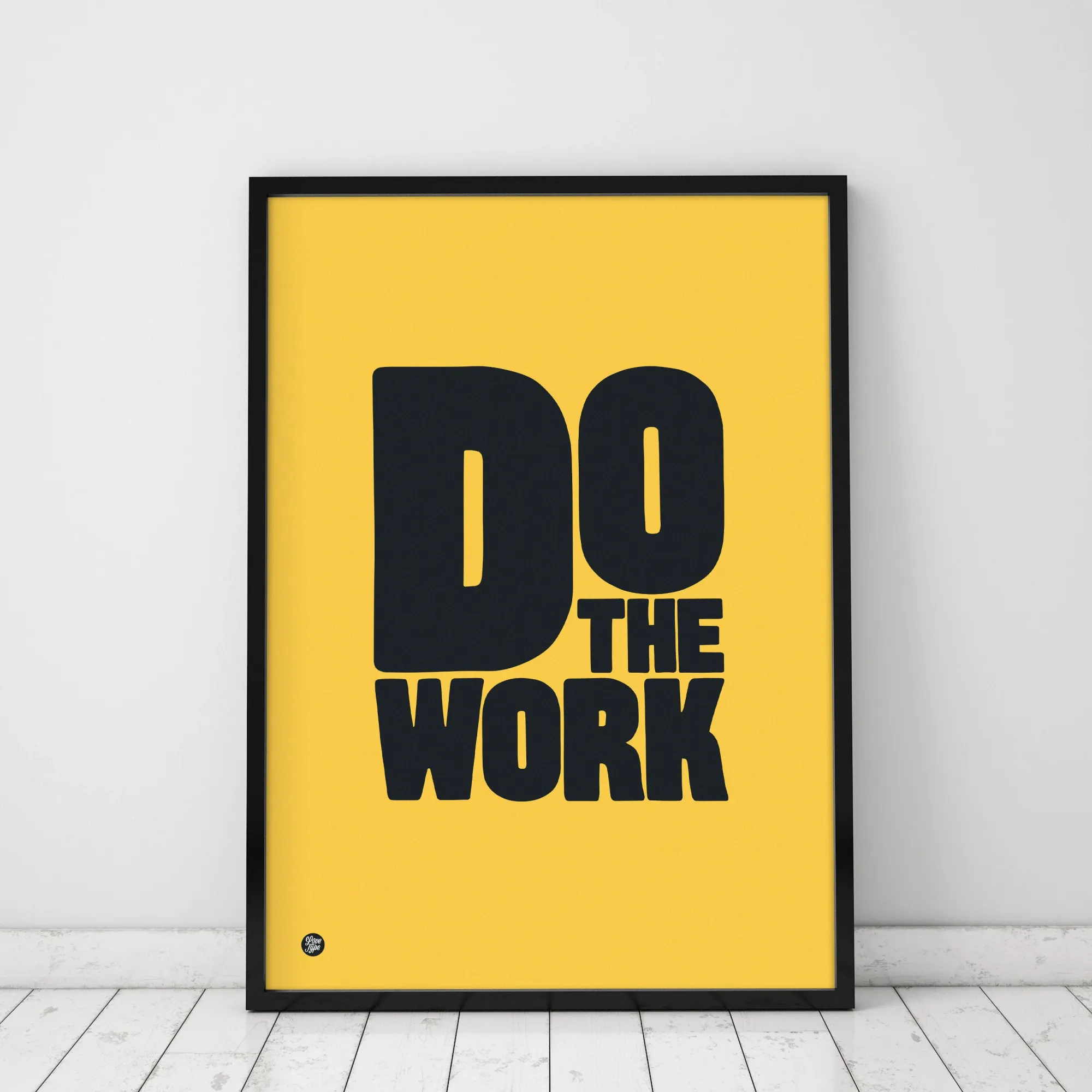At Some Point, You Have to Eat The Broccoli

It's human nature to seek out systems and principles that can improve various aspects of our lives.
From better habits to enhanced mental tendencies, we all strive for self-improvement.
At Just Thrive, I firmly believe that with practice and guidance, good thinking and decision-making can be learned, just like perfecting a golf swing. However, it's important to remember that progress requires effort.
In this blog post, we'll explore the challenges of implementing new habits, the importance of doing the work, and the undeniable truth that meaningful change often comes with a side of metaphorical broccoli.
The Snare of Self-Improvement:
While the pursuit of self-improvement is admirable, many people fall into the trap of not following through with the systems and habits they adopt. Homeostasis, the self-regulating feedback loops that keep us entrenched in familiar routines, plays a significant role in hindering change.
We've all witnessed the cycle: an enticing promise of an easy fix, be it a money-making scheme, a revolutionary exercise routine, or a shortcut to success. However, sooner or later, reality sets in, and we realize that either we must confront the uncomfortable or unnatural aspects of the system, or the system itself is ineffective.
The Failure to Implement Habits:
Example 1:
Let's take the example of a habit of reading 25 pages a day. Reading those pages requires genuine effort and commitment. Yet, even with this modest habit, I noticed that many people were initially enthusiastic but eventually fell away. Why? Because the allure of simplicity and quick results often fades when faced with the reality of consistent effort.
Example 2:
Think about the popular concept of the "10,000 steps a day" for improved fitness. Many people eagerly jump on board, purchasing fitness trackers and committing to achieving this daily step count.
However, as days go by, they realize that reaching 10,000 steps requires conscious effort and adjustments to their daily routine. It might mean taking the stairs instead of the elevator, going for a walk during lunch breaks, or even waking up a bit earlier for a morning stroll.
The initial excitement wears off, and the allure of staying within their comfort zones becomes stronger. Consequently, many individuals gradually abandon the goal and return to their sedentary habits, missing out on the long-term benefits of regular physical activity.
Example 3:
Imagine you come across a new productivity system that promises to revolutionize your work-life balance. It emphasizes prioritization, time-blocking, and efficient task management. Excitedly, you give it a try and experience a surge of productivity in the first few days.
However, as the novelty wears off, you find it challenging to stick to the system consistently. It requires discipline, eliminating distractions, and occasionally saying no to non-essential commitments.
The comfort of old habits and the temptation to procrastinate creep back in. Without the resilience and commitment to persist with the system, you eventually abandon it, missing out on the opportunity to improve your productivity and achieve a better work-life balance.
Do the Work:

The truth is, there are no shortcuts or free lunches when it comes to personal growth or organizational improvement. Evaluating proposed solutions or changes in your life requires identifying the metaphorical broccoli—the sacrifices and discomfort that accompany progress.
Any system, no matter how well-designed, can only make the broccoli more palatable by breaking it down into manageable portions. Take the example of a fitness system that gradually increases the number of pushups you do each day. It starts with one pushup, then two, and so on. While this approach eases you into the habit, you'll eventually reach a point where you have to do a significant number of pushups daily. You can't revert to plain mac-and-cheese, avoiding the broccoli. The real challenge lies in your willingness to continue eating it.
The Two Groups:
The willingness to pay the price is what separates individuals into two distinct groups.
The first group wants something but is unwilling to do the hard work necessary to achieve it. They passively wait for life to happen to them, always finding excuses and never making progress.
The second group, however, embraces the challenge. They don't wait for perfection or make excuses. They persevere daily, understanding that occasional setbacks are part of the journey.
Which group do you think is more likely to succeed?
Which group do you believe is happier?
Which group do you aspire to be part of?
Embracing the Hard Truth:
Remember, anything truly worth doing requires hard work and a willingness to step out of your comfort zone. There are no easy paths to significant achievements. If it were effortless, everyone would already be doing it. Learning to give better feedback, for example, is an immensely valuable skill.
However, implementing it requires overcoming our natural inclination to criticize, putting aside our egos, and choosing our words wisely. These endeavors may feel uncomfortable and unnatural, demanding persistence and discipline.
As we strive for self-improvement, let's acknowledge that genuine progress requires effort. The allure of "no broccoli" promises can be tempting, but they are mere illusions.
By embracing the discomfort, sacrifices, and challenges along the way, we differentiate ourselves from the majority. Remember, the work you put in today will shape your tomorrow.
So, let's be willing to eat the broccoli, for it is through these efforts that we truly grow and find fulfillment. Before you know it, what once seemed uncomfortable and unnatural may become the new norm, while the old habits lose their appeal. Embrace the journey, commit to doing the work, and watch yourself thrive.
Action Steps:
- Reflect on an area of your life where you've been seeking improvement but have been avoiding the uncomfortable aspects. Consider the sacrifices you need to make and the discomfort you need to face.
- Identify one habit or system you've been hesitant to implement due to the perceived challenges or unfamiliarity. Commit to giving it a try and sticking with it for a set period of time.
- Embrace the concept of "eating the broccoli" in your daily life. Whenever you encounter resistance or discomfort, remind yourself that meaningful growth often comes from pushing past those boundaries.
- Surround yourself with a support system that encourages and motivates you to continue doing the work. Share your journey with like-minded individuals who understand the value of embracing challenges.
- Celebrate your progress and small victories along the way. Remember that change takes time, and every step forward counts, regardless of its size.
Now, go out there and start eating that broccoli!